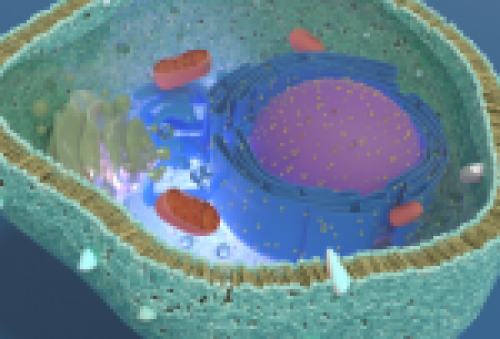Impact of Toxins on Mitochondria

In the intricate tapestry of cellular biology, mitochondria stand as the unsung heroes, orchestrating the symphony of energy production and maintaining cellular equilibrium. However, this delicate balance is under constant threat from toxins like mold that infiltrate our bodies, wreaking havoc on these vital cellular organelles through a myriad of disruptive mechanisms.
Electron Transport Chain
The electron transport chain (ETC), an intricate series of protein complexes nestled in the inner mitochondrial membrane, serves as the linchpin for energy production through oxidative phosphorylation. Toxins, as insidious invaders, often impair this vital process, causing a ripple effect that can lead to cellular damage. By disrupting the ETC, toxins thwart the transfer of electrons, subsequently derailing the generation of a proton gradient crucial for ATP synthesis.
Oxidative Stress
The malevolent influence of toxins extends further through the induction of oxidative stress. Some toxins act as saboteurs, generating reactive oxygen species (ROS) or inhibiting the antioxidant defense mechanisms. This onslaught of ROS inflicts damage upon mitochondrial DNA, proteins, and lipids, precipitating a cascade of events that culminate in mitochondrial dysfunction.
Mitochondrial Pores
Another avenue through which toxins compromise cellular vitality is the alteration of the mitochondrial permeability transition pore (MPTP). Acting as gatekeepers, these pores regulate the passage of ions and other molecules across the inner mitochondrial membrane. Toxins can perturb the delicate balance of MPTP, disrupting its opening and closing mechanisms, thereby compromising mitochondrial function.
Enzyme Inhibition
The direct inhibition of enzymes within mitochondria, particularly those involved in the tricarboxylic acid (TCA) cycle, is yet another insidious tactic employed by toxins. By interfering with these enzymatic processes, toxins undermine the very foundation of cellular energy production.
Disruption of the Electrochemical Gradient
A subtle but significant target of toxins is the electrochemical gradient across the inner mitochondrial membrane, known as the mitochondrial membrane potential. Disruption of this gradient by toxins sets off a chain reaction that reverberates through the delicate equilibrium of cellular functions.
Cellular Equilibrium Dysfunction
Mitochondria, in their ceaseless pursuit of cellular harmony, constantly undergo fusion and fission processes collectively known as mitochondrial dynamics. Toxins, however, interfere with this delicate ballet, throwing a wrench into the machinery of cellular equilibrium.
Early Cell Death
In the face of severe mitochondrial dysfunction induced by toxins, cells may resort to a drastic measure: programmed cell death, known as apoptosis. This last resort is triggered when the toll on mitochondrial function becomes untenable, underscoring the profound impact toxins can have on cellular survival.
How to Combat Attacks on Our Mitochondria
Given the omnipresence of toxins in our modern environment, safeguarding our mitochondria has become imperative for maintaining overall health. Incorporating daily exposure to sunshine and, when that’s not possible, leveraging the benefits of red-light therapy can fortify mitochondrial resilience. Strategic supplementation with compounds like resveratrol, CoQ10, NAD+, MitoQ, B vitamins, Quinton minerals, and D ribose provides additional support. Grounding, sweating, and cold plunges further contribute to the arsenal of strategies to fortify mitochondrial health. Furthermore, you can support your natural detoxification pathways.
Learning About Different Mycotoxins
This blog has several articles on mold. Check here for information about aflatoxins and citrinin.
In a world besieged by toxins, arming ourselves with knowledge and adopting proactive measures can empower us to safeguard the delicate dance of cellular equilibrium orchestrated by our mitochondria. For help with protecting your mitochondria, reach out to a qualified integrative practitioner or functional medicine practitioner for guidance. They can help teach you about natural detoxification pathways, mycotoxin binders, avoiding mold, helping to support Mast Cell Disorders, etc.




